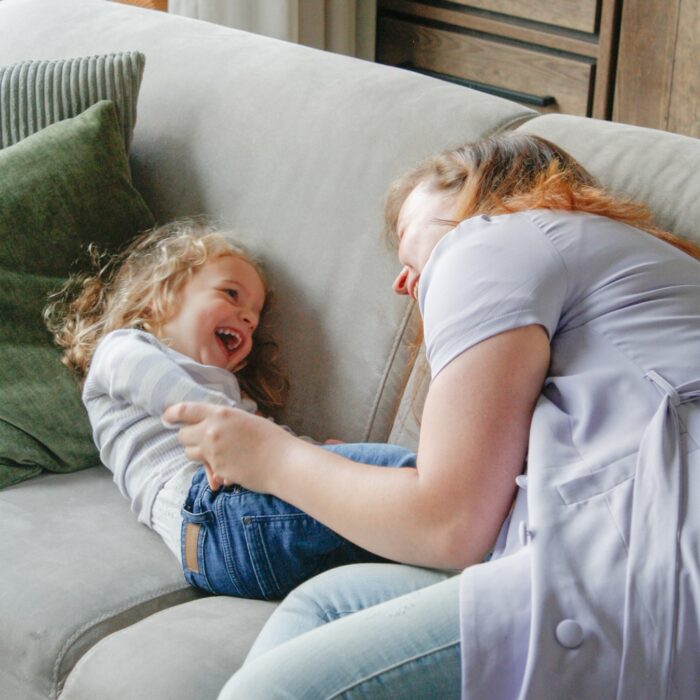Au pairs play a crucial role in providing childcare and assisting with household tasks in foreign host families. As part of a cultural exchange program, au pairs are expected to work a specific number of hours each week while living with their host families. The exact working hours can vary depending on the country and the specific host family but typically fall within the range of 20 to 40 hours per week. We’ll explore the concept of au pair working hours, their significance, and how these hours may differ from one family to another. Whether you’re an au pair looking to understand your responsibilities or a host family seeking to define the terms of the arrangement, we will provide valuable insights into au pair working hours. For country-specific regulations, scroll down to view the table overview we have provided.


One of the most critical factors influencing au pair working hours is the regulations set by each country. Different nations have their own rules and guidelines for au pair programs, which may include specific limits on working hours. Host families and au pairs are expected to adhere to these regulations to ensure a harmonious and legal exchange.
The host family’s expectations also play a significant role in determining the working hours of an au pair. Some families may require more assistance with childcare and household tasks, while others may only need limited support. The specific duties and responsibilities expected of an au pair can impact the number of hours they work each week.
In some countries, au pairs are required to participate in language courses as part of the cultural exchange program. These language courses may be integrated into the working hours, but they should not extend beyond a reasonable limit. Balancing work and language learning is essential to ensure the overall well-being of the au pair.
Clear and defined working hours are essential for both au pairs and host families. They help establish expectations and boundaries, ensuring a fair and harmonious exchange. Here’s why having set working hours is crucial:
Establishing working hours ensures that au pairs are treated fairly. It prevents situations where au pairs are overworked, which can lead to burnout and strain the relationship between the au pair and the host family.
Having set working hours allows au pairs to maintain a healthy work-life balance. It enables them to plan their free time, social activities, and personal development, which are crucial aspects of the cultural exchange experience.
Adhering to defined working hours ensures compliance with the regulations of the host country. Ignoring these regulations can have legal consequences for both the au pair and the host family, jeopardizing the entire exchange program.


The working hours of an au pair are not arbitrary; they are an integral part of the au pair’s weekly schedule. This schedule serves as a blueprint for how an au pair’s time is allocated during their stay with the host family. Understanding the connection between working hours and the weekly schedule is essential for both au pairs and host families to ensure a well-structured and harmonious experience.
A well-designed au pair weekly schedule balances working hours, free time, and other commitments. It is a practical tool that helps both the au pair and the host family manage their expectations and responsibilities. Here are some key considerations for creating an effective weekly schedule:
Working hours are typically the foundation of the weekly schedule. These hours are determined based on the host family’s needs and the au pair’s responsibilities, such as childcare, light household tasks, or language courses. The working hours are spread throughout the week, and they should not exceed the maximum allowed by the regulations of the host country.
In addition to working hours, au pairs should have designated free time in their weekly schedule. This free time is essential for the au pair’s well-being, allowing them to rest, explore the local culture, and engage in personal activities. It’s a crucial component of the cultural exchange experience.
For many au pairs, language courses are an integral part of their experience. These courses may be integrated into the weekly schedule, or they may be separate, depending on the host country’s regulations. The schedule should allocate time for language classes and homework, ensuring that they do not overlap with working hours.
The weekly schedule should include meal times and rest breaks for the au pair. These breaks provide an opportunity to recharge and maintain energy levels throughout the day.
Cultural immersion is a significant aspect of the au pair program. The weekly schedule can incorporate time for the au pair to participate in cultural activities, visit local landmarks, and interact with people in the community. These experiences enrich the overall exchange.
Language courses are an integral part of the au pair experience in many countries. These courses not only enhance the au pair’s language skills but also contribute to their cultural immersion. However, it’s crucial to strike a balance between work and language courses to ensure that au pairs can fully benefit from both aspects of their exchange program.
The inclusion of language courses in working hours varies by country. In some nations, language courses are separate from working hours, allowing au pairs to focus exclusively on language learning during their designated course time. In other countries, language courses are integrated into the working hours, which means that the time spent in class counts towards the weekly working hours.
Regardless of the approach, it is essential to ensure that the total hours, including work and language courses, do not exceed the maximum allowed by the host country’s regulations. This ensures that au pairs have enough time to rest, socialize, and immerse themselves in the host culture.


Au pair working hours play a significant role in the success of the cultural exchange program. By understanding the regulations in their host country and establishing clear working hours, both au pairs and host families can create a positive and mutually beneficial experience. It’s crucial for both parties to communicate openly, set expectations, and respect the agreed-upon working hours to ensure a harmonious relationship and legal compliance. Whether you’re an au pair embarking on a new adventure or a host family welcoming a cultural exchange, being informed about working hours is key to a successful and enriching experience.
Below you will find a table about the holidays for au pairs in different countries.